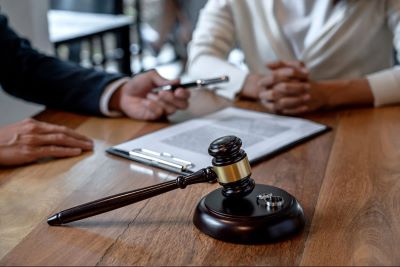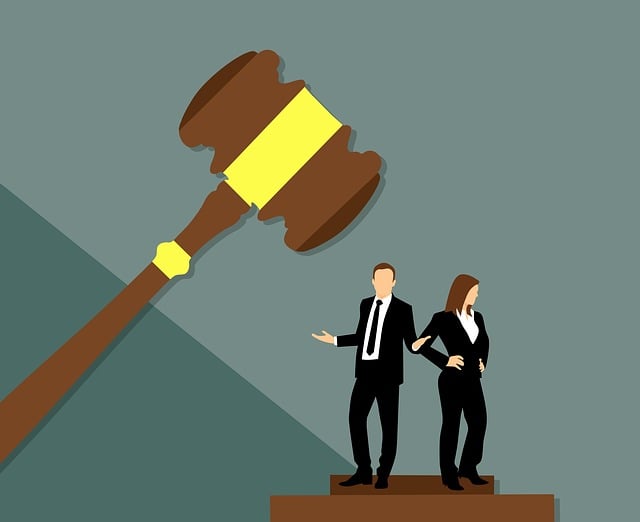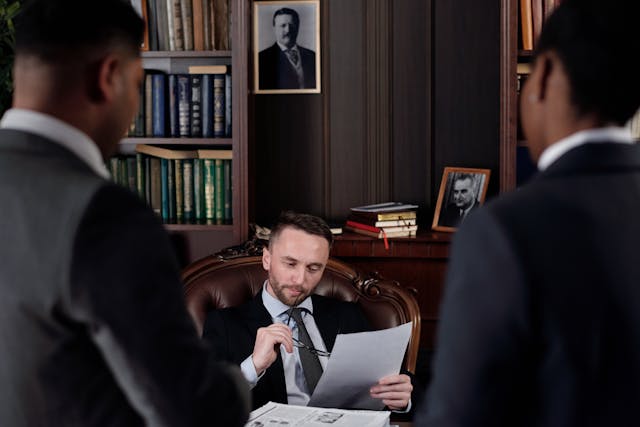When facing legal issues, whether personal or business-related, a lawyer might come in handy. The legal landscape can be complex, and finding an attorney who is knowledgeable and suited to your specific needs can make a significant difference in the outcome of your case.
Maybe you’re seeking legal advice for a contract dispute, a family matter, or any other legal challenge ’” whatever the case, you should know how to choose the right lawyer. Here are six practical tips to help you find the perfect attorney for your needs.
Determine the Type of Lawyer You Need
Different lawyers specialize in various areas of law, so it’s important to choose someone with experience in the particular field that pertains to your issue. If you’re dealing with a business agreement or a legal dispute over a contract, a contract lawyer would be the best fit for your case. Their expertise in drafting, reviewing, and enforcing contracts ensures that your rights are protected and that you receive the best possible legal advice.
Similarly, if you’re faced with a family law issue, such as divorce or child custody, you’ll want to seek out a family law attorney. Identifying the specific legal area will help narrow down your search and be sure that you find an attorney with the relevant experience to handle your case efficiently.
Research Lawyer’s Credentials and Experience
Once you’ve determined the type of lawyer you need, the next step is to research potential candidates’ credentials and experience. Look for attorneys who are licensed in your state and have a strong track record in their area of expertise. Most law firms have websites where you can read about the lawyers’ qualifications, areas of practice, and years of experience.
You should also look into any reviews or testimonials from previous clients. These can provide insight into the lawyer’s approach, communication style, and success rate. If possible, choose an attorney who has handled cases similar to yours and has a proven history of delivering positive results for their clients.
Ask for Referrals
The most reliable way to find a good lawyer is through referrals from friends, family, or colleagues. If someone you trust has had a positive experience with a lawyer, ask them for a recommendation. Referrals provide a sense of confidence in the lawyer’s abilities and work ethic.
If you don’t have any personal connections to lawyers, consider reaching out to professional organizations. Local bar associations often have referral services that can connect you with reputable lawyers in your area based on your legal needs. Getting a referral from a trusted source can help you feel more secure in your decision-making process.
Schedule Consultations with Potential Lawyers
Before hiring a lawyer, it’s a good idea to schedule consultations with a few potential candidates. Many lawyers offer initial consultations for free or at a reduced fee, giving you the opportunity to discuss your case and gauge whether the attorney is a good fit for you.
During the consultation, ask about the lawyer’s experience, approach to your type of case, and fee structure. This is also a chance to assess how comfortable you feel with the lawyer. You want to choose someone who is not only qualified but also someone you feel confident communicating with. A strong attorney-client relationship is essential for successful outcomes, so make sure you find someone you can trust.
Understand the Lawyer’s Fee Structure
Legal fees can vary widely depending on the type of case, the complexity of the issues, and the lawyer’s experience. Understand the lawyer’s fee structure before committing to their services. Some lawyers charge an hourly rate, while others work on a flat fee or contingency basis, meaning they only get paid if you win your case.
Make sure to ask about any additional costs, such as court fees, filing fees, or expenses for expert witnesses. Understanding the full scope of costs involved in your case will help you avoid surprises down the road and ensure that you can afford the legal representation you need.
Evaluate Communication and Responsiveness
Effective communication is key to a successful attorney-client relationship. When selecting a lawyer, consider how responsive and communicative they are during the initial stages of your interaction. Do they return your calls and emails promptly? Do they take the time to explain the legal process clearly, or do they leave you feeling confused and uncertain?
A lawyer who is attentive, approachable, and communicates well can impact your legal experience. Choose an attorney who is responsive to your concerns and takes the time to keep you informed throughout your case. This will give you confidence in their ability to handle your legal matter efficiently.
Finding the right lawyer requires careful consideration of their experience, communication style, and fees. By following these practical tips’”identifying the type of lawyer you need, doing thorough research, seeking referrals, scheduling consultations, understanding the fee structure, and evaluating communication’”you can make an informed decision that ensures your legal matter is handled effectively. With the right attorney by your side, you’ll have the support and expertise necessary to navigate your legal challenges successfully.



